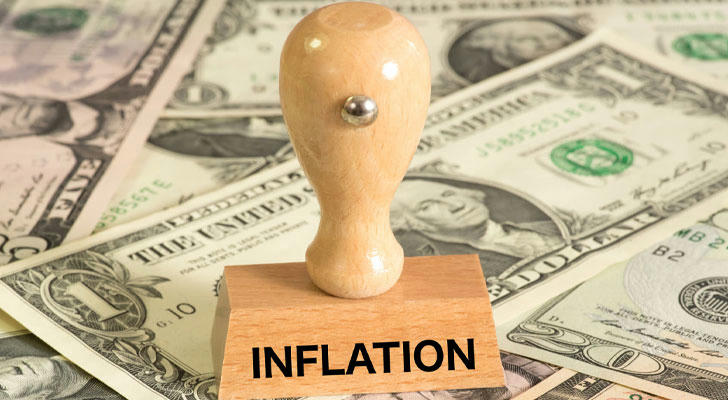The Silent Tax: How Inflation Is Robbing You Without You Noticing
Inflation is often called the “silent tax” — a hidden force quietly eroding your purchasing power and the value of your assets over time. Unlike income tax or sales tax, inflation doesn’t send a bill or statement; it simply reduces what your money can buy, little by little, year after year. This invisible tax affects everyone, from everyday consumers to seasoned investors, and understanding its impact is crucial to protecting your wealth and financial future.
This article explores inflation as a silent tax, explaining how it affects your assets in real life, sharing relatable examples, and offering insights to help you stay ahead of this stealthy economic challenge.

What Is Inflation and Why Is It Called a “Silent Tax”?
Inflation means the general rise in prices of goods and services across the economy. When inflation occurs, each dollar you hold buys less than before. This decline in purchasing power acts like a tax on your money—except it’s not collected by any government agency. Instead, it reduces your real wealth invisibly.
For example, if inflation is 5% per year, something that costs $100 today will cost $105 next year. If your savings don’t grow by at least that rate, your money effectively shrinks in value.
Unlike explicit taxes, inflation is “silent” because:
You don’t get a direct bill or notice.
Its effects accumulate gradually, often unnoticed.
It reduces the real value of cash savings, fixed incomes, and even some investments.
How Inflation Steals Your Wealth: The Impact on Assets
Inflation doesn’t just raise prices—it erodes the real value of many types of assets. Here’s how it plays out in everyday life:
Cash and Savings Accounts
Money kept in a regular savings account earning low interest often loses value in real terms during inflation. For example, if your savings account pays 1% interest but inflation is 4%, your money’s purchasing power falls by about 3% annually.
Bonds and Fixed-Income Investments
Bonds with fixed interest payments lose value when inflation rises because the fixed payments buy less over time. This is why inflation-indexed bonds have become popular—they adjust payments based on inflation.
Real Estate and Stocks
Real estate and stocks often serve as partial hedges against inflation, as property values and company revenues may rise with prices. However, inflation can also increase costs (like construction or materials) and reduce consumer spending, impacting returns.

Real-Life Cases: Inflation’s Hidden Impact
Case 1: The Retiree’s Fixed Income Squeeze
Linda, a retiree living on a fixed pension, noticed her monthly expenses rising steadily. While her pension remained the same, prices for groceries, utilities, and healthcare increased by about 6% annually. Over five years, her purchasing power dropped nearly 25%, forcing her to cut back on essentials.
Case 2: The Young Saver’s Shrinking Nest Egg
Jake started saving $200 a month in a traditional savings account earning 1.5% interest. After 10 years of 4% inflation, his savings had grown nominally but lost about 20% in real value. Without adjusting his investment strategy, Jake’s nest egg couldn’t keep pace with rising costs.
Case 3: The Investor’s Inflation Hedge
Maria owns rental properties and stocks. During a recent inflation surge, her rental income increased with market rents, and her stock portfolio appreciated. While inflation raised her expenses, her assets’ growth helped preserve her wealth, illustrating how some investments can offset inflation’s silent tax.
Why Inflation Hits Harder Than You Think
Inflation’s regressive nature means it disproportionately affects those with less financial flexibility:
People relying on cash savings or fixed incomes lose more purchasing power.
Those with investments that keep pace with inflation fare better.
Everyday essentials like food and fuel often rise faster than average inflation, squeezing budgets.
Additionally, inflation can cause “bracket creep,” where wage increases push taxpayers into higher tax brackets, increasing their tax burden without real income growth.
How to Protect Yourself from the Silent Tax
Understanding inflation’s impact is the first step. Here are practical ways to safeguard your wealth:
Invest in Inflation-Protected Securities: Treasury Inflation-Protected Securities (TIPS) adjust with inflation.
Diversify with Real Assets: Real estate, commodities, and stocks often keep pace with or outgrow inflation.
Consider Higher-Yield Accounts: Look for savings or investment accounts with returns above inflation.
Review and Adjust Budgets: Track spending changes and adjust saving and investment plans accordingly.
Stay Informed: Monitor inflation trends and economic indicators to anticipate changes.

The Bigger Picture: Inflation and the Economy
Inflation isn’t just a personal finance issue; it’s a macroeconomic challenge. Central banks, like the Federal Reserve, use tools such as interest rate adjustments to control inflation. When inflation rises too fast, it can slow economic growth, increase borrowing costs, and reduce consumer confidence.
Governments also feel the impact: inflation can increase tax revenues due to higher nominal incomes but also raises public spending needs, creating complex fiscal dynamics.
Final Thoughts: Don’t Let Inflation Steal Your Future
Inflation is a silent but powerful tax that quietly chips away at your financial security. Recognizing its effects on your savings, investments, and daily expenses empowers you to make smarter decisions.
By adapting your financial strategy and staying informed, you can turn this hidden threat into an opportunity to build lasting wealth.
